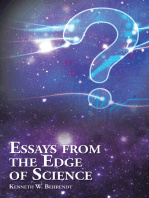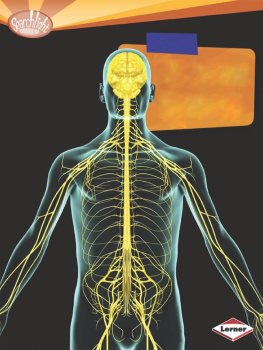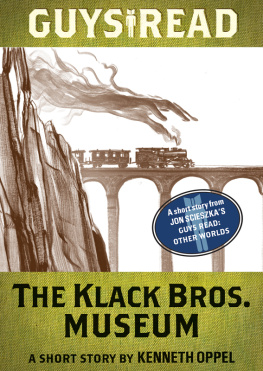ON THE NERVOUS EDGE OF AN IMPOSSIBLE PARADISENew Directions in Anthropology
GENERAL EDITOR:
Jacqueline Waldren, Research Associate at the Institute of Social and Cultural Anthropology, Oxford University, and Director, Deia Archaeological Museum and Research Centre, Mallorca
Migration, modernization, technology, tourism, and global communication have had dynamic effects on group identities, social values, and conceptions of space, place, and politics. This series features new and innovative ethnographic studies concerned with these processes of change.
Recent volumes:
Volume 45
On the Nervous Edge of an Impossible Paradise: Affect, Tourism, Belize
Kenneth Little
Volume 44
Nourishing the Nation: Food as National Identity in Catalonia
Venetia Johannes
Volume 43
Burgundy: A Global Anthropology of Place and Taste
Marion Demossier
Volume 42
A Goddess in Motion: Visual Creativity in the Cult of Mara Lionza
Roger Canals
Volume 41
Living Before Dying: Imagining and Remembering Home
Janette Davies
Volume 40
Footprints in Paradise: Ecotourism, Local Knowledge, and Nature Therapies in Okinawa
Andrea E. Murray
Volume 39
Honour and Violence: Gender, Power and Law in Southern Pakistan
Nafisa Shah
Volume 38
Tourism and Informal Encounters in Cuba
Valerio Simoni
Volume 37
The Franco-Mauritian Elite: Power and Anxiety in the Face of Change
Tijo Salverda
Volume 36
Americans in Tuscany: Charity, Compassion, and Belonging
Catherine Trundle
For a full volume listing, please see the series page on our website: https://www.berghahnbooks.com/series/new-directions-in-anthropology
ON THE NERVOUS EDGE OF AN IMPOSSIBLE PARADISE
Affect, Tourism, Belize
Kenneth Little
First published in 2020 by
Berghahn Books
www.berghahnbooks.com
2020 Kenneth Little
All rights reserved. Except for the quotation of short passages for the purposes of criticism and review, no part of this book may be reproduced in any form or by any means, electronic or mechanical, including photocopying, recording, or any information storage and retrieval system now known or to be invented, without written permission of the publisher.
Library of Congress Cataloging-in-Publication Data
A C.I.P. cataloging record is available from the Library of Congress
Library of Congress Cataloging in Publication Control Number: 2019042651
British Library Cataloguing in Publication Data
A catalogue record for this book is available from the British Library
ISBN: 978-1-78920-646-3 hardback
ISBN: 978-1-785920-647-0 ebook
For Harry
(19472014)
But it wasnt magical [realism] to me if you live in the Caribbean you know that reality is wilder than the craziest fiction.
Marlon James, New Yorker Radio Hour
The task approached in tenderness and faith is to hold up unquestioningly, without choice and without fear, the rescued fragment.
Joseph Conrad, The Children of the Sea
ACKNOWLEDGMENTS
This book is the product of a lot of travel and many years of deep hanging in Belize during which time I have amassed a lifetime of debt. I am forever grateful to a great many people for their generous support, encouragement, and friendship, and I know now how much books really are shared accomplishments. This list is long. It has been my privilege to share ideas and to receive guidance and close readings of some of this work from a remarkable group of colleagues at York University. My thanks go to the members and organizers of the Department of Anthropology Working Paper Series for giving me the opportunity to present chapters during two workshops. A debt of gratitude goes to Shubhra Gururani and Natasha Myers for organizing these very productive and lively events. I thank my department colleagues who took the time to read and discuss Studies, York University, Toronto, Canada, for the financial support it provided to this work.
It has been my privilege to be associated with the Centre for Imaginative Ethnography and to have had such continuous support of three of its leaders: Dara Culhane, and my York colleagues Denielle Elliott, and Magda Kazubowski-Huston. They have encouraged me to participate in several of their workshops and online collaborations. They also have very generously provided me with a radically open intellectual space in which to experiment with writing as well as opportunities to share my Belize stories with audiences broader than those I might normally have imagined. I offer special thanks to Lindsay Bell for acting as a discussant during one of these sessions. I also want to thank Stuart McLean for his remarks on a very early version of . He shared them during an American Anthropological Association workshop organized by the Centre for Imaginative Ethnography in 2014. Many thanks to Kathy Bischoping for her useful notes on Belize Blues.
Similarly, it has been my honor to be associated with the, now closed, Centre for Tourism and Cultural Change (CTCC), first when it was housed at Sheffield Hallam University and later when it moved to Leeds-Metropolitan University. I am heavily indebted to Mike Robinson, the Centres Director. The CTCC may still be considered the most important intellectual hub for the study of tourism, ever, and that is mostly due to the care and effort that Mike Robinson and the faculty and staff put into it. The CTCC also created an exciting space for the dissemination of tourism studies by training a cohort of graduate students who have gone on to impressive careers of their own, including Valerio Simoni, who has become a close intellectual ally and friend. He has my many thanks for his encouragement and support. The CTCC organized a distinguished, if not exhausting, series of imaginative thematic discussions dealing broadly with themes in tourism such as movement, language, pilgrimage, ritual, spectacle, performance, affect, and materiality, to name a few. I was honored to be invited to many of these CTCC events. Several chapters of this book started as CTCC papers. The Centre always attracted a global range of researchers, practitioners, and creative arts professionals dealing broadly with travel and tourism studies, and it did more to encourage the critical study of tourism than any other organization that I can think of. I have made life-long colleagues and friends through the CTCC. It was at these events that I met Sally Ness, Alison Phipps, and Hazel Tucker, who have always remained interested and supportive of the work I have been trying to do. I am honored to call them cherished colleagues and friends and have learned much from them and their examples as critically innovative ethnographers of tourism. To them I owe a tremendous debt of gratitude. I owe a debt of gratitude to David Picard for his insights, friendship, and support while at CTCC events and beyond. In 2008, I was appointed a Visiting Research Professor at the Centre for Tourism and Cultural Change at Leeds-Metropolitan University, an appointment I held for five very productive years. I wish to thank the CTCC for that support as well. There is no replacing the CTCC.















